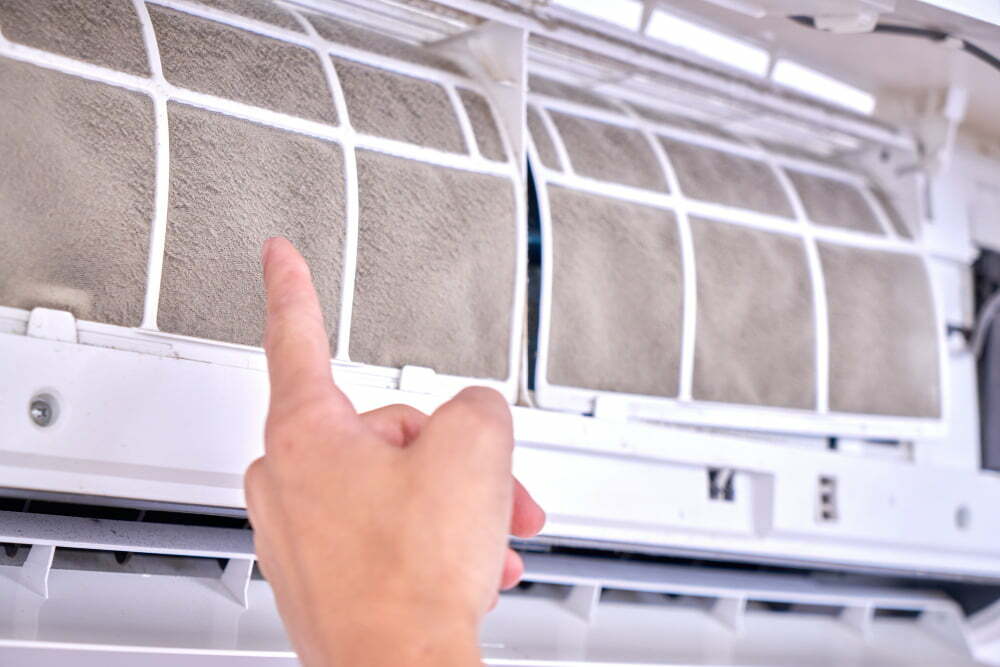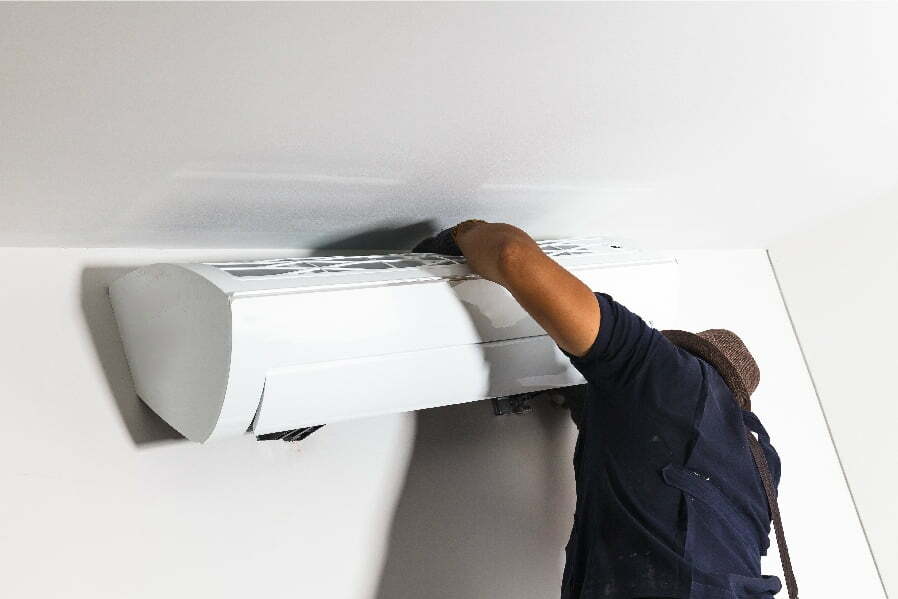Last updated on
Maintaining a comfortable and healthy living space requires keeping your home’s air quality at its best. Routinely cleaning your HVAC coils is one of the most effective ways to achieve this.
But do you know how to clean HVAC coils when they get too dirty?
Neglecting this maintenance task can lead to decreased efficiency, higher energy costs, and poor indoor air quality. In this blog post, you’ll learn simple steps to clean your HVAC coils yourself, which will result in improved AC unit performance and fresher air to breathe.
How to Clean HVAC Coils in 4 Simple Steps

To clean your HVAC coils, start by turning off the power supply, removing debris with compressed air or a soft-bristled brush, applying a coil cleaner solution, and thoroughly rinsing the coils. Here are the steps suggested by a must-have HVAC maintenance plan in Fort Mohave, AZ.
Step 1: Turn Off Power Supply
Ensure the power supply to your HVAC unit is completely turned off for safety and to prevent electrical damage.
Step 2: Remove Debris From Coils
Remove accumulated debris and dirt from the coils using compressed air or a soft-bristled brush. Be gentle to avoid damaging the fins.
Step 3: Apply Coil Cleaner Solution
Use a coil cleaning solution suitable for your coil type. Follow the instructions and let it sit for several minutes to penetrate dirt and grime. Rinse the coils thoroughly to remove any residue.
Step 4: Rinse Coils With Water
After applying the coil cleaning solution, rinse the coils with a gentle stream of water. Ensure all remaining dirt and cleaning solution are removed.
And that’s it! Now you know how to clean HVAC coils like an expert. If you need any help along the way, don’t hesitate to contact your local HVAC service provider.
Benefits Of Clean HVAC Coils For Home Air Quality

Cleaning your HVAC coils provides numerous benefits for your home’s air quality. It improves indoor air quality, enhances performance and efficiency, and reduces energy costs.
Improved Indoor Air Quality
Cleaning HVAC coils significantly improves indoor air quality by removing dirt and debris, reducing mold, bacteria, and allergens. It ensures an even distribution of cool or warm air throughout your home, making it more comfortable.
Enhanced Performance And Efficiency
Clean HVAC coils enhance system performance and efficiency by allowing proper airflow. This reduces the workload on your system and lowers energy consumption.
Lower Energy Costs
Clean HVAC coils lead to lower energy costs as the system operates more efficiently. Dirty coils require the system to work harder, resulting in increased energy consumption and higher bills.
Maintenance Tips To Keep HVAC Coils Clean
Regularly cleaning your HVAC coils is crucial to maintain good air quality. Change or clean air filters, schedule professional maintenance, regularly clean coils, and keep outdoor units free of debris.
Regularly Clean Coils
Regularly clean coils using compressed air or a soft-bristled brush to prevent dirt and debris buildup.
Change Or Clean Air Filters
Regularly change or clean your HVAC air filters to prevent blockage and ensure optimal system performance. Replace disposable filters or clean permanent filters according to manufacturer recommendations.
Schedule Professional Maintenance
Schedule professional maintenance at least once a year to ensure thorough cleaning and proper system operation.
Keep Outdoor Unit Free Of Debris
Regularly remove debris from the outdoor unit to ensure efficient heat exchange. Trim vegetation and clear fallen leaves to prevent clogging.
The Takeaway
Cleaning your HVAC coils is essential for improving home air quality. By following the four steps outlined and implementing regular maintenance tips, you can enjoy a healthier living environment, enhanced system performance, and lower energy costs. From DIY methods to commercial cleaners, maintaining AC coil cleanliness has never been easier.
Recap:



